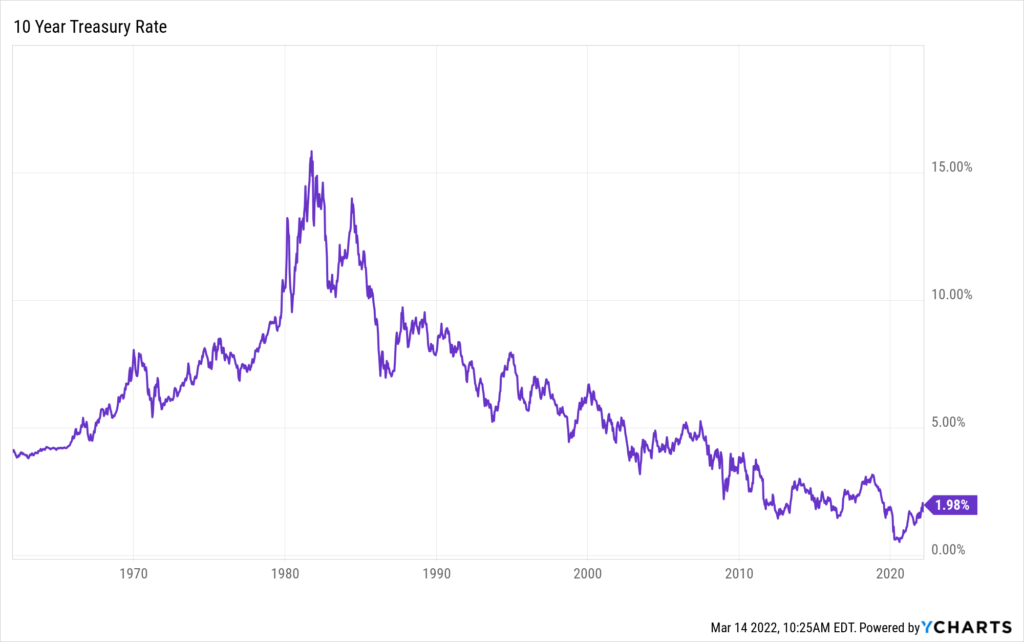
Investing in a target date fund may be one of the worst investment decisions you can make.
Especially in today’s market environment.
Today, I may lose a few friends in the investment industry. I’m surely ruffling some feathers by shedding light on just why these funds were created, and how toxic they can be for your wealth.
But in our market environment, these funds can be more dangerous than ever. And I want to help you avoid the risks that these funds pose for your retirement.
So if you’ve got your nest egg invested in a target date fund, listen up!!
What IS a Target Date Fund?
Before we jump into why I dislike target date funds, let’s review how these funds work.
A target date fund is a mutual fund that claims to adjust risk level based on your expected retirement year.
So if you’re planning to retire in 2045, you would typically invest in a target date fund specifically for that year.
As you get closer to your date of retirement, the fund is supposed to adjust its investments to become more conservative.
The idea is that you’ll take less risk as you get closer to retirement. That way, the value of your nest egg will stabilize and your investment income will become more reliable as you approach retirement.
Sounds like a good thing right?
But as with many things in life, the truth is buried in the details. And in the case of target date funds, investors are not getting the true benefits they’re expecting.
Here are four reasons I would stay away from these funds right now.
1: The Purpose is Laziness
Target date funds have been celebrated as a great invention… for financial advisors.
No longer does an advisor or wealth manager have to look through your financial picture and arrange a portfolio that meets your needs.
Instead, he or she can just stick you in a target date fund.
You’ll still be charged the normal fees of course. But your advisor can now spend more time courting new clients or working on putting skills.
You should know I’ve got nothing against efficiency. And target date funds are certainly efficient!
But efficiency is only attractive if the job is still being done — and being done right!
Unfortunately, target date funds passively allocate investments to different investment classes. But they don’t actively search for opportunities or adjust based on any changes in your life.
Target date funds are great for financial planners But they only do a half-@$$ job for investors.
2: Target Date Funds Use Poor Logic
Here’s one thing that drives me nuts with these funds…
Over time, these funds adjust from being heavily invested in stocks, to taking much larger positions in bonds.
The logic behind this move is that bonds are supposed to carry less risk. So as you get closer to retirement, these bonds will help keep your nest egg from losing value.
Sure, that’s been true for the last 40 years. But that’s because interest rates have been declining over the last 4 decades.
And when interest rates decline, bond prices move higher. So these “safe” bonds have had the wind at their back for as long as most professionals have been in business.

But what happens now that interest rates are set to rise? Well this creates a major headwind for corporate bonds, treasury bonds and most other “fixed income” investments.
So while the logic behind target date funds is to reduce risk over time, these funds are actually shifting more capital into risky plays that will be hurt by higher interest rates.
Unfortunately, these funds are likely to surprise many investors as the Fed starts hiking rates and these bond positions take on water.
Which brings us to point number three…
3: These Funds Give Investors False Security
We all want to feel like our retirement savings are secure and growing steadily.
But what if that just isn’t the case? Wouldn’t you want to know??
When you invest in a target date fund, the implied promise is that everything will come together by the time you need the funds. And so even if you know that inflation is rising, the market is pulling back and there are risks to our economy — you feel safe.
After all, you’re invested in a target date fund and by 2045, everything will be fine.
Investing doesn’t always work that way. Especially passive investing that simply follows a set formula.
If you’re paying attention to your investments and watching the level of savings, you have a good idea of when you can retire and what will be available to cover your golden years.
Adjustments can be made ahead of time. You can decide to work longer if necessary, take on a side gig after retirement, or adjust some of your plans to match what is available to spend.
But if you blindly trust in a target date fund, it is likely that you’ll be surprised with what is available to you when you get to that date.
Especially with the risks we’ve already talked about!
4: The Cost of Missed Opportunity
Losses can come in many forms. And one of the most costly type of loss is a missed opportunity.
While your capital is in a target date fund, you’ll miss out on the chance to invest strategically in areas that are actually performing well!
In every season, the market gives us key opportunities to grow wealth.
Tech stocks gave investors some incredible gains during the coronavirus crisis. Gold stocks are breaking out right now in response to inflation. Energy stocks were on fire even before the Russia / Ukraine crisis. There are seasons when financial stocks do well, retail plays are in vogue, or travel & leisure companies are generating big profits.
Paying attention to trends…
Buying into fundamentally strong situations…
Selling risky positions that are losing momentum…
And many other smart investment moves, can grow your wealth more quickly than investing in a target date fund.
And smart investment decisions can also help you avoid some of the losses that will naturally be included in a passive investment approach.
Over the next few days I’ll be covering some of the alternatives to target date funds.
In the meantime, consider cutting these positions in your account — if for no other reason than avoiding the risk of falling bonds!
